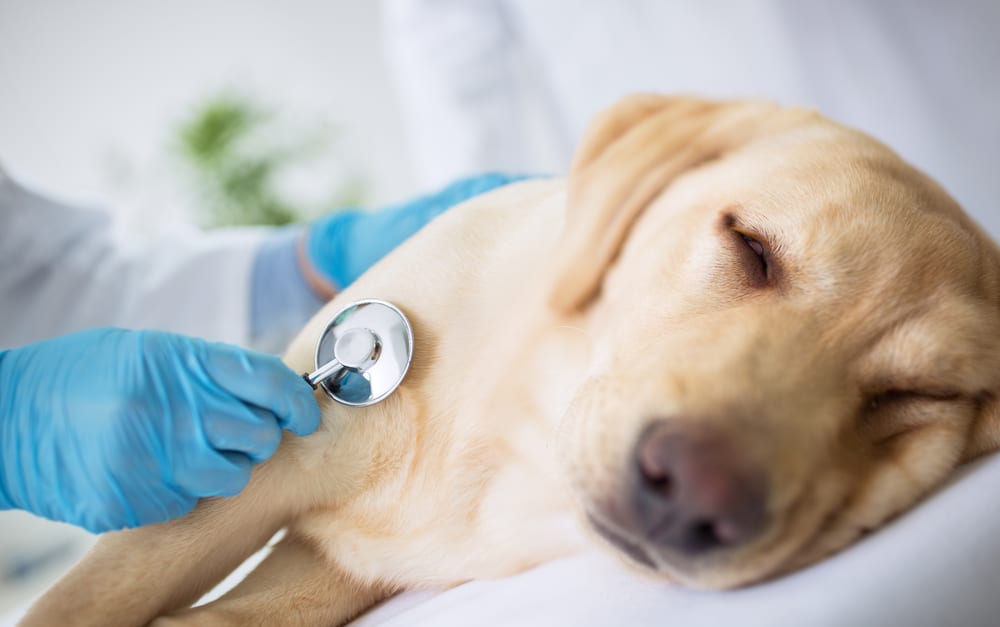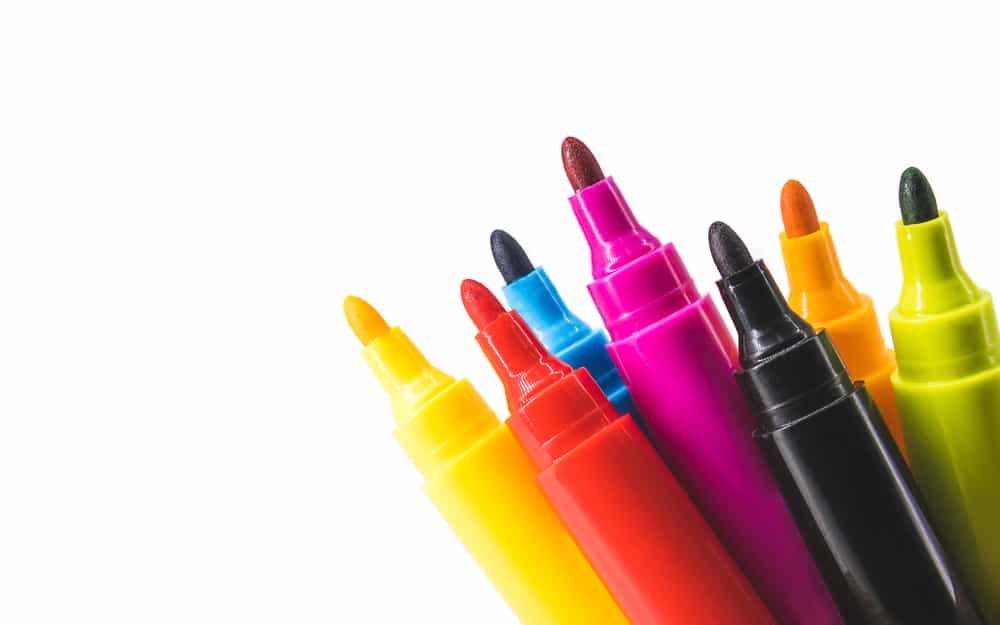Crayola markers are quite popular among kids and many times dogs accidentally eat these. Are you anxious about finding out what will happen if your dog ingests a Crayola marker? More importantly, are Crayola markers even toxic to dogs?
Crayola markers are not toxic to dogs. The ink used in these markers is non-toxic. However, if a dog ingests the plastic covering or nib it may cause a digestive disturbance or obstruction.
Table of Contents
What Are Crayola Markers?
Kids are artists use Crayola markers for coloring and marking artwork. As a result, these markers are non-toxic and use washable ink with a fine tip that works smoothly on paper.
How Does Crayola Make Crayola Markers?
So, let’s dive into the manufacturing process of Crayola markers. According to the Crayola company, they make Crayola markers with 6 parts: a barrel made of plastic, a filament filled with coloring solution, a plug, a porous nib and a cap.
A mix of solvent, additives, preservatives, and water makes the ink.
Factories color the plastic barrel so it has the same color as the ink on the inside. Then, ink is put in the filament and on its way down the conveyor belt, it fits into the barrel with a plug attached. A nib/drawing tip is inserted towards the opening end, which a cap covers. Finally, the marker is ready for drawing.
Is The Ink In Crayola Markers Toxic To Dogs?

The ink in Crayola markers are not toxic to dogs because of its proven non-toxic chemical nature. These markers are made with a safe ink because it may be ingested by kids and pets. Moreover, as you may know, the ink is washable, which makes it easier to get off skin too.
Do Crayola Markers Have Any Health Risks For Dogs?
When discussing the health risks of ingesting a Crayola marker, one must ask what part of the marker is ingested by the dog? As discussed earlier, the ink in Crayola markers is not toxic to dogs, which leaves us with the hard plastic parts like the barrel, nib etc.
Now, If a dog accidentally ingests the plastic parts, there is a possibility of gum or tongue damage, obstruction in the gastrointestinal tract (GIT), and inflammation of the stomach and intestines called gastroenteritis. Other medical emergencies may include gastric dilation and intestinal volvulus.
What Should I Do If My Dog Ingested A Crayola Marker?
Firstly, don’t panic. Identify whether the dog ingested the whole marker, plastic parts, or just ink. If it is just ink, your dog will be fine. But if your dog ingested the plastic parts take him to the veterinarian for checkup before the condition worsens.
Be mindful of signs like choking, dyspnea (difficulty in breathing), and vomiting. All of the above warrant an emergency treatment by a veterinarian.
Are Any Kinds Of Markers Toxic To Dogs?
Unfortunately, permanent markers can be.
Ink in permanent markers is made from toluene and xylene resins which gives it the property of leaving a permanent mark. Xylene and toluene are aromatic hydrocarbons, a kind of petroleum component which presents a risk of toxicity if ingested or inhaled by a dog.
Small amounts of toluene and xylene can cause pulmonary irritation on inhalation. Signs of toxicity like vomiting, drooling, and incoordination manifest after a large lethal dose is ingested by a dog. Please contact your vet, emergency vet, or poison control right away if this happens.
Here you can have a detailed overview of petroleum toxicity in animals.
In Conclusion: Are Crayola Markers Toxic To Dogs?
After thorough research on Crayola markers and whether or not they’re toxic to dogs, we conclude that Crayola marker ink is non-toxic. Unfortunately, the plastic parts aren’t though, so contact a professional if this happens.
So, does this fact surprise you? Let us know your thoughts and why in the comments below!
